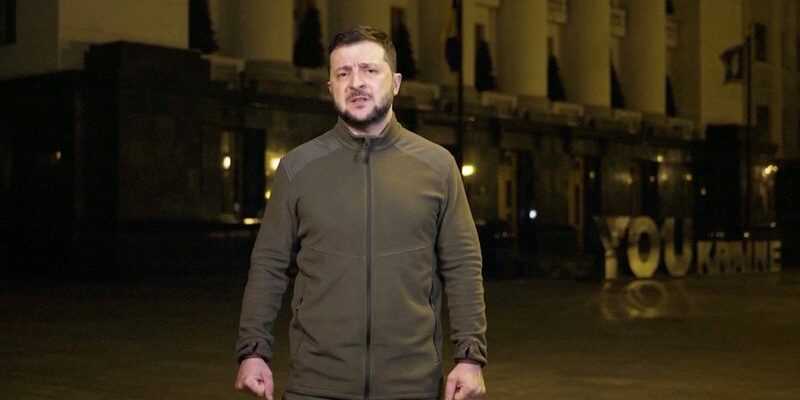Western sanctions against Russia for its nearly six-week invasion of its neighbor got a boost this week after civilians were found dead, shot at point-blank range, in the Ukrainian town of Bucha, recaptured from Russian forces.
Russia has denied targeting Bucha civilians and called the evidence presented a “monstrous fake” staged by the West to discredit it.
The new sanctions to be unveiled on Wednesday are partly a Bucha response, the White House said.
These measures, coordinated between Washington, the Group of Seven advanced economies and the European Union, will target Russian banks and officials and ban new investment in Russia, the White House said.
The sanctions proposed by the European Union, which the 27 member states of the bloc must approve, would ban the purchase of Russian coal and prevent Russian ships from entering EU ports.
EU executive Ursula von der Leyen said the bloc was also working to ban oil imports. Europe, which gets around a third of its natural gas from Russia, has been wary of the economic impact of a total ban on Russian energy.
But, in a sign of strengthening EU resolve, Germany’s foreign minister said the coal ban was the first step towards an embargo on all Russian fossil fuel imports. Ukraine says the Russian gas ban is key to securing a war-ending deal in peace talks.
In a speech delivered early in the morning, Mr. Zelenskiy declared that the new sanctions “against Russia must be commensurate with the gravity of the war crimes of the occupiers”, qualifying this moment as “crucial” for Western leaders.
He added: “If after that Russian banks operate as usual, if after that the transit of goods to Russia continues as usual, if after that EU countries pay Russia for energy as usual, then the political destiny of some leaders will not develop as usual.”
CHANGING BATTLES
Since launching its invasion on February 24, Russia has failed to capture a single major city in what it calls a “special military operation” aimed at demilitarizing and “denazifying” Ukraine.
The Kremlin’s position is dismissed by Ukraine, a parliamentary democracy, and by the West as a pretext for an unprovoked invasion that has uprooted a quarter of the country’s population.
Russian forces largely withdrew from around kyiv last week after becoming bogged down in Ukrainian resistance. They shifted their offensive to southern and eastern Ukraine.
In the beleaguered southern port of Mariupol, where tens of thousands of people are trapped with limited access to food or water, a freighter flying the flag of Dominica sank on Tuesday after being hit by Russian missile strikes, according to the ship’s flag register.
Russia did not respond to a request for comment. Its armed forces said on Tuesday that they shot down two Ukrainian military transport helicopters that were trying to leave the city.
The Ukrainian armed forces headquarters said the attacks were continuing on Mariupol, but gave no details.
In the east, where Ukraine’s second largest city, Kharkiv, is among Russia’s main targets, the General Staff said Ukrainian forces destroyed three Russian tanks and about 20 other armored vehicles.
BUCHA SPULTURE
Ukrainian officials say between 150 and 300 bodies could be in a mass grave near a Bucha church, north of the capital kyiv.
Satellite images taken weeks ago show the bodies of civilians on a city street, a US private company has said, undermining Russian claims that Ukrainian forces caused the deaths or that the scene was staged.
Reuters reporters saw at least four victims shot in the head by Bucha, including one with his hands tied behind his back.
Residents reported several other people killed, some of them shot in the eye and another apparently beaten to death and maimed.
On Tuesday, Ukrainian Serhii Lahovskyi buried the body of a childhood friend who had been shot in the mouth at a very short distance after disappearing when Russian troops occupied the city.
Lahovskyi and others took shovels and dug a shallow grave on a grassy edge. They used a mat to transport the body, placing it in a ditch before covering it with wooden planks and shoveling dirt over it.
“Why did those animals shoot him like that?” said Lahovskyi, sobbing. “It’s not Russia, it’s a monster”.
Reuters could not independently verify the details of Lahovskyi’s account or who was responsible for the Bucha killings.
